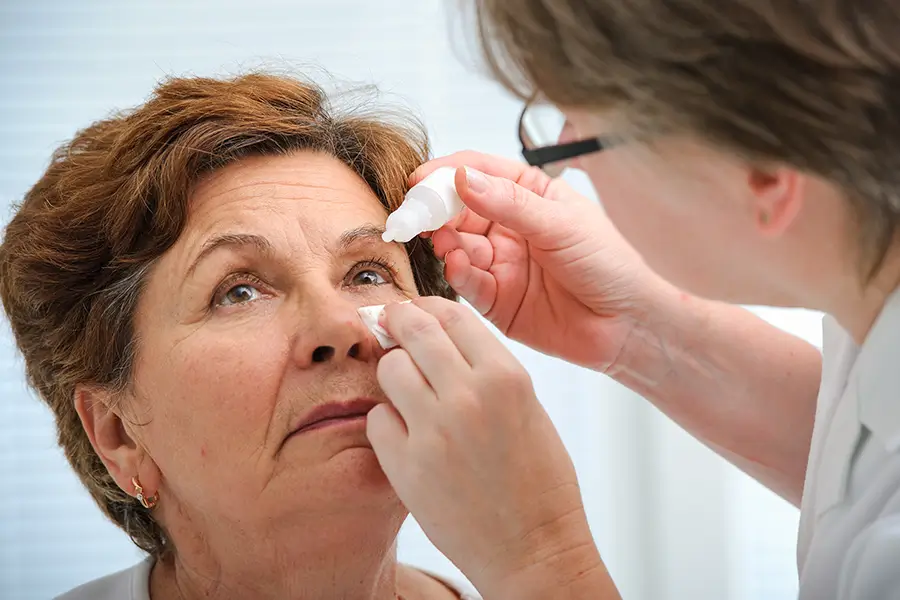Home » Dry Eye Syndrome: From Symptoms to Solutions
It’s no secret that our eyes play a critical role in how we experience the world around us. When they function smoothly, we rarely notice them. However, when irritation or discomfort sets in, as is the case with dry eye syndrome, the impact on our daily lives can be profound. If you’ve ever felt like your eyes are persistently gritty, stinging, or burning, you’re not alone. These are common symptoms of dry eye, a condition that affects millions of people worldwide. Fortunately, expert help is available at Tennessee Eye Care.
First, let’s delve into understanding dry eye syndrome better.

Dry eye symptoms often present as a paradoxical feeling of watery eyes. However, this excess tear production is usually a response to the discomfort caused by dry eye, not a relief from it. Other symptoms may include:
If you’re experiencing these symptoms, it’s essential not to ignore them. They could indicate dry eye syndrome, but they may also be signs of other eye health issues.
Dry eye syndrome is often a result of tear film dysfunction. A healthy tear film is a complex layer of oils, water, and mucus that helps to keep our eyes lubricated and comfortable. When any part of this system fails to work correctly, it can lead to dry eye. Factors that can disrupt the tear film include:
If you suspect you may have dry eye, it’s crucial to get a professional diagnosis. The optometrists at Tennessee Eye Care use specialized tests to evaluate your tear production and eye surface condition. This process could involve the use of dye eye drops to check for damaged cells on your cornea or the Schirmer’s test to measure how quickly your eyes produce tears.
Once diagnosed, your eye care professional at Tennessee Eye Care will develop a tailored treatment plan based on the underlying cause of your symptoms. Dry eye treatments can range from lifestyle changes, such as taking breaks during computer work, to medications that help your eyes produce more tears. In some cases, procedures to block the tear ducts or intense pulsed light therapy might be recommended.
Artificial tears or eye drops are the most common treatment for mild dry eye symptoms. If your dry eye is caused by an underlying condition, treating that condition may help alleviate your symptoms. For instance, if a medication you’re taking is causing your dry eyes, your doctor may recommend an alternative medication that doesn’t have this side effect.
In addition to professional treatment, you can also help manage your symptoms at home. Using a humidifier can add moisture to dry indoor air. Consuming a diet rich in omega-3 fatty acids or taking supplements can also help improve tear quality.
Dry eye syndrome is more than just a minor inconvenience; it’s a medical condition that can significantly impact your quality of life. However, with professional care and proper management, you can mitigate the symptoms and enjoy life with clear, comfortable vision.
If you’re tired of suffering from dry eye, we invite you to take the first step toward relief. Reach out to the compassionate team at Tennessee Eye Care today. We’re committed to understanding your unique situation and tailoring a treatment plan that fits your lifestyle. Remember, your vision is our mission.